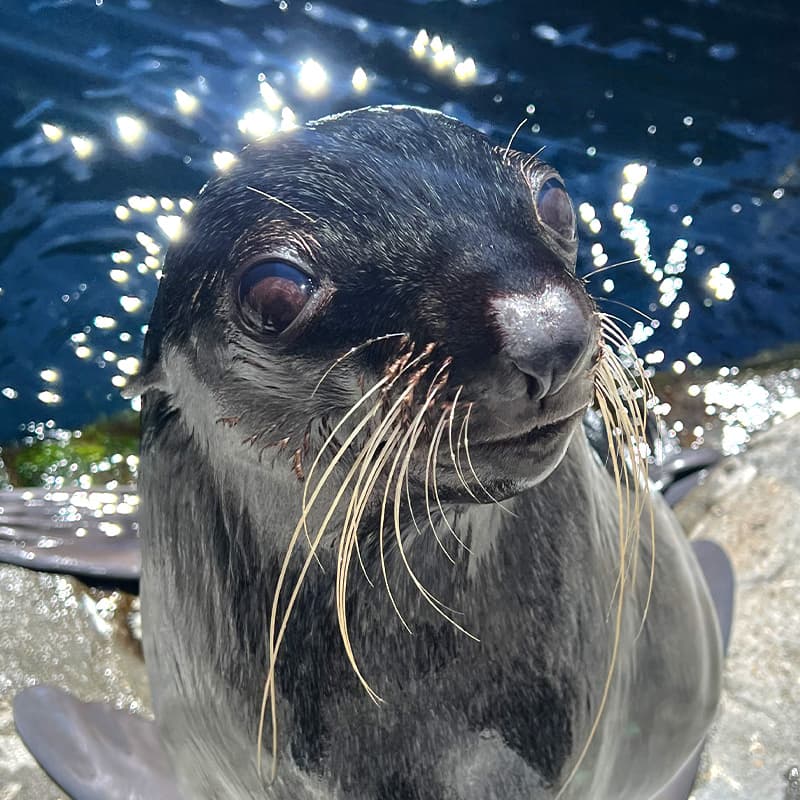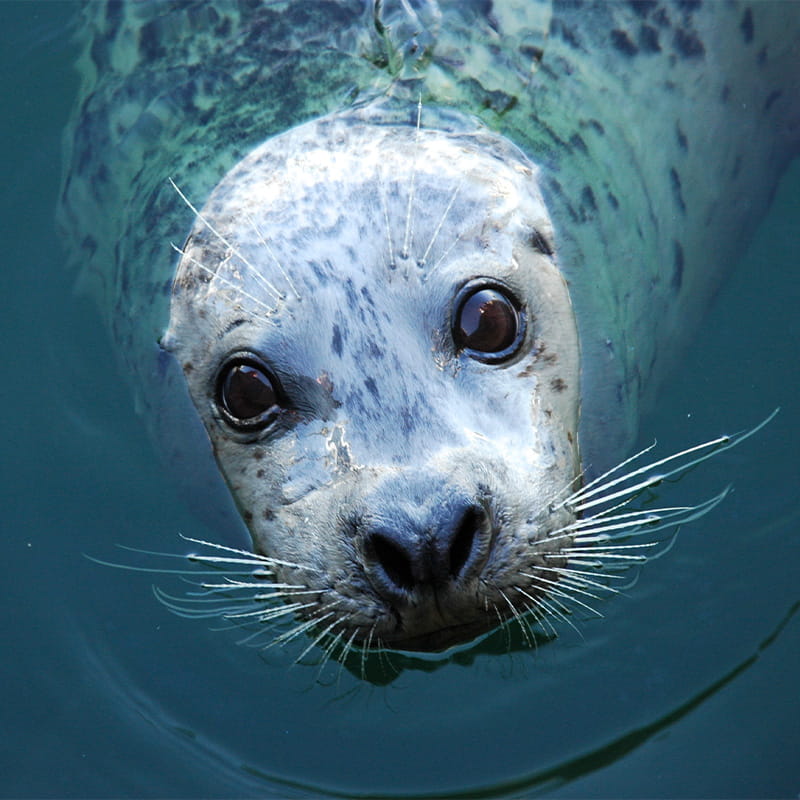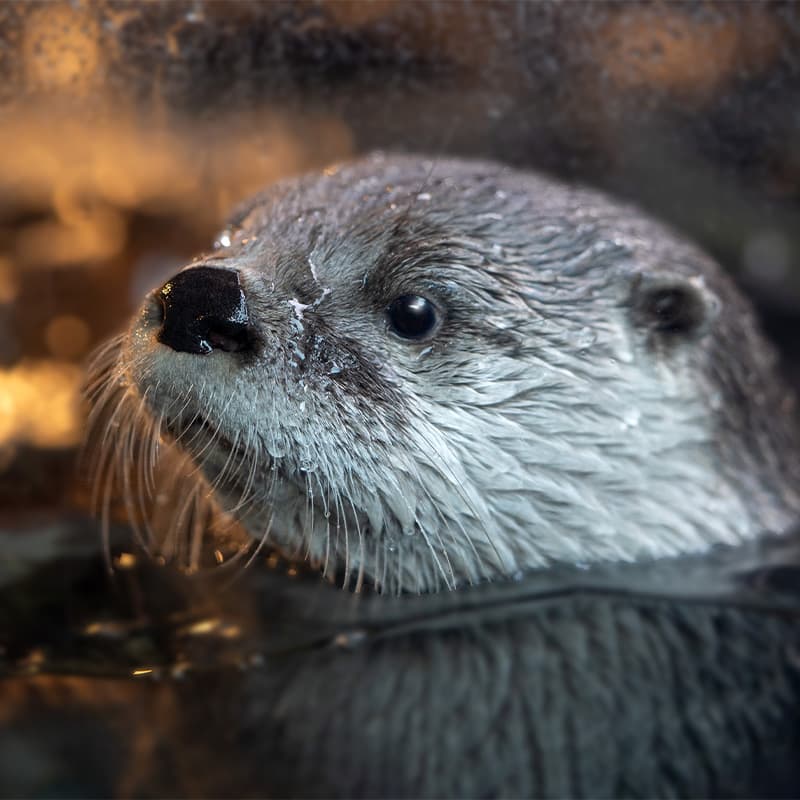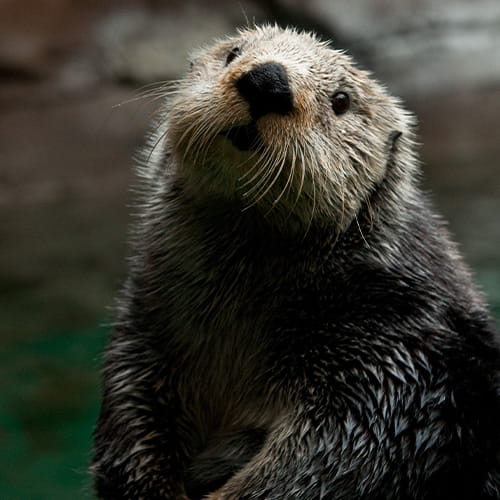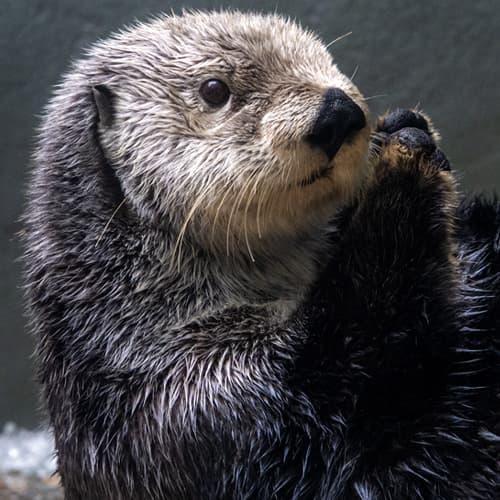- Mammals
Sea otter
Meet our northern sea otters: Mishka and Sekiu
Say hello to our otters: females Mishka and Sekiu. Learn a bit about them below, and keep scrolling to discover fascinating facts about these charming, outgoing, intelligent mammals. Then come see the dynamic duo in action on your next visit to the Aquarium!
At the Aquarium
- Sea otter habitats, Pier 60
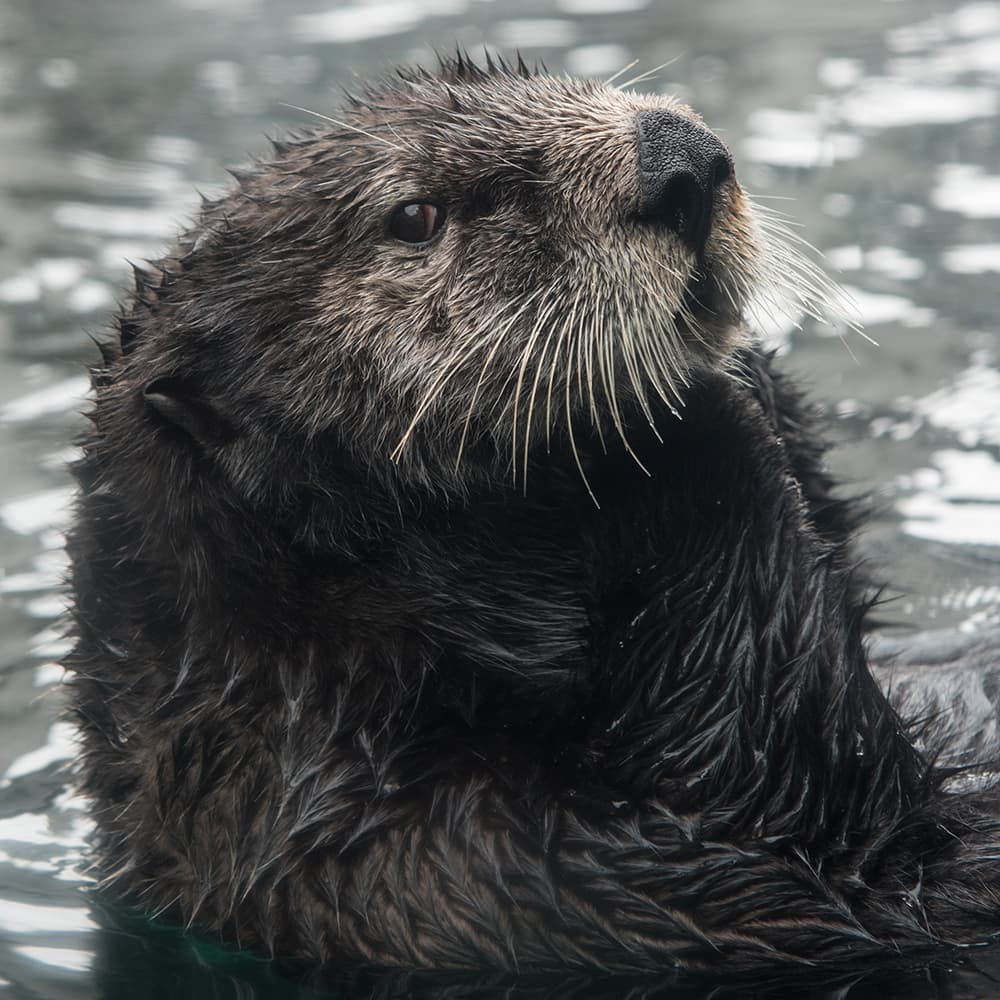
MISHKA
Mishka joined us in January 2015, after being caught in a fishing net as a young pup, then being rescued and rehabilitated by the Alaska SeaLife Center and deemed non-releasable by the U.S. Fish & Wildlife Service.
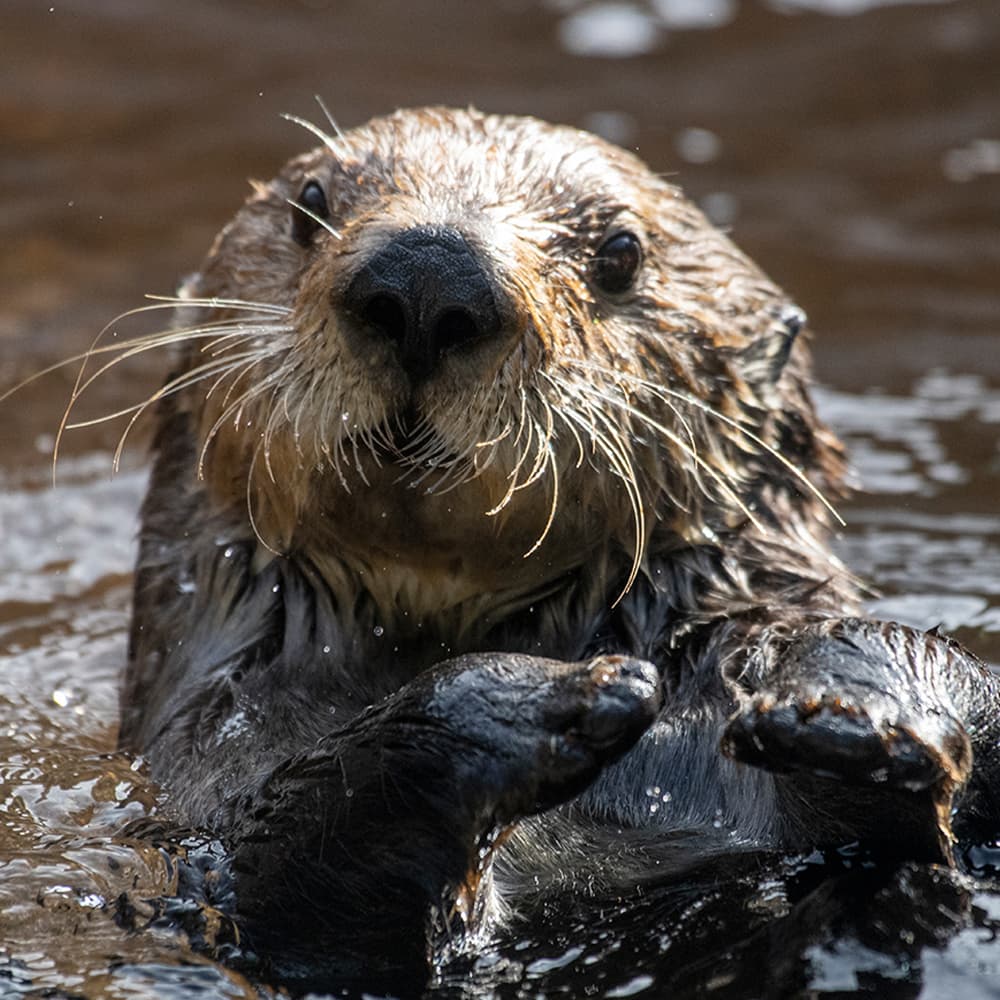
SEKIU
Sekiu was born right here at the Seattle Aquarium on January 14, 2012! Her mother was Aniak, who passed away under our care in June 2021, and her father was Adaa, who passed away under our care in February 2022 . Sekiu was the 11th pup to be successfully born at the Aquarium, and the last sea otter born in a zoological facility in the United States (see our FAQ for more details). After being transferred to the Point Defiance Zoo & Aquarium in 2017 to be a companion for their sole female at the time, she returned to us in December 2021.
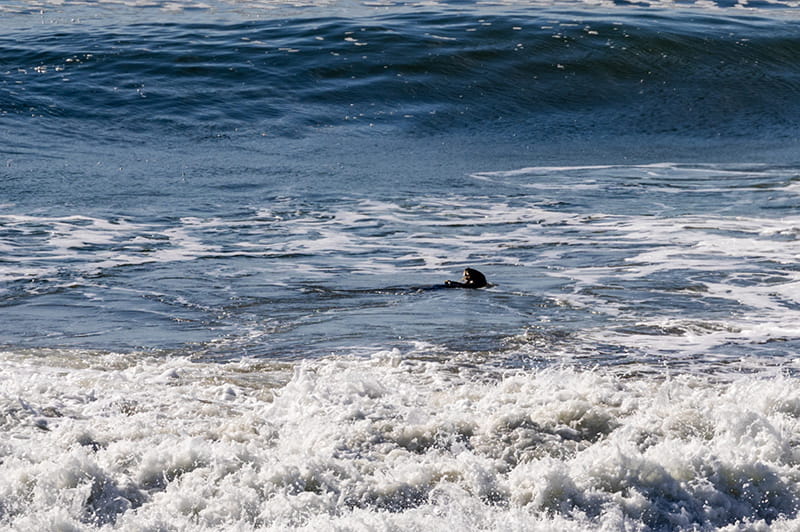
Home, sweet home
In the wild, most northern sea otters live in rocky coastal habitats near points of land where some of the areas are protected from wind and waves. In the world of sea otter real estate, a nearby kelp bed is an added bonus!
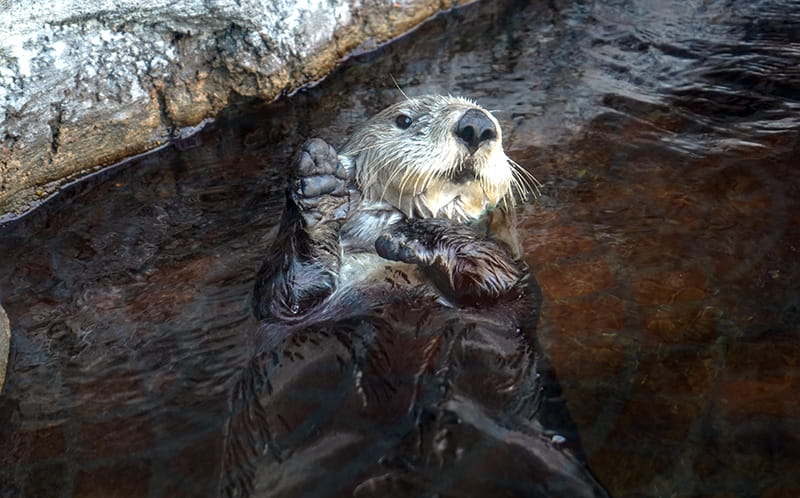
Making a (slow) comeback
Hundreds of thousands of sea otters once lived along most of the coastal North Pacific. That was before fur traders hunted them for their thick, luxurious pelts in the late 1800s. By the year 1900, sea otters were nearly extinct: less than 2,000 remained. The international Fur Seal Treaty of 1911 stopped further exploitation of sea otters, as did the 1972 Marine Mammal Protection Act. Their numbers are now on the rise, but nowhere near their previous levels.
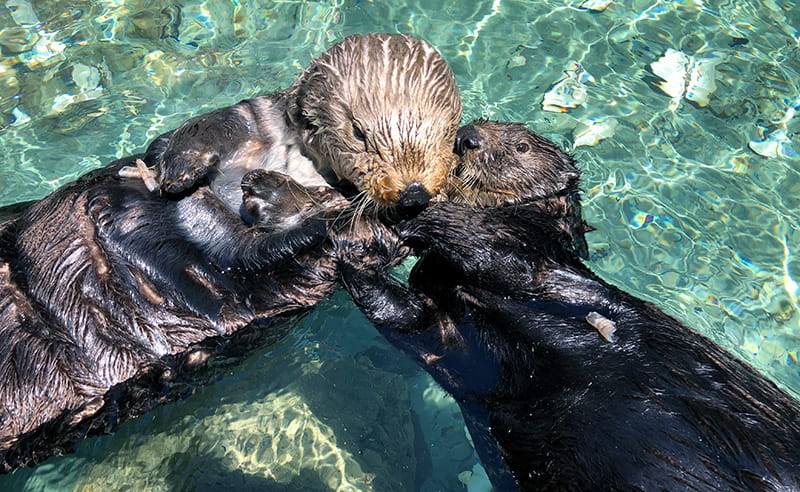
Wanna hold hands?
In the wild, sea otters sometimes “hold hands”—or, more accurately, paws—while sleeping so they don’t drift away from their raft (the term for a group of resting sea otters). While charming to think about, this paw holding doesn’t actually happen that frequently. Large rafts of sea otters in the wild are more likely to stay together by watching each other, listening for each other, and casual body contact—then adjusting movements of their tails and rear flippers to maintain proximity. Paw holding is most likely a learned behavior specific to certain individual sea otters, who may find it comforting! Awwww.
What’s with all the grooming?
Sea otters spend about 15 percent of each day grooming their fur by rolling and whirling in the water to remove food scraps and debris. They rub, comb and rake their fur with their forepaws and lick the fur with their coarse tongues. And they’re not just doing it to look good! The fur insulates their bodies by trapping tiny air bubbles and keeping a layer of air between the outer surface and their skin. If the fur becomes dirty, it loses its insulating qualities, allowing water to penetrate all the way to the skin. Brrrr!
Who’s who? Sea otters vs river otters
Many people don’t know the difference between sea otters and river otters—but, with a little info, you’ll be able to tell right away.
First, sea otters are two to three times the size of river otters—and, when at the water’s surface, they float on their backs, while river otters swim belly down like most animals. Next, the tail of a sea otter is short and flattened; a river otter’s tail is long and pointed. Also, sea otters spend most of their lives in the water, where they breed, give birth, hunt for food and sleep. River otters live most of their lives on solid ground and use the water to travel and find food.
There are other important differences between these two species as well: northern sea otters are found only in coastal areas, with a range that extends north from the Washington coast, along the outer edge of Vancouver Island, and up to Alaska. They are occasionally seen along the Straits of Juan de Fuca near Port Angeles, but they rarely venture further inland than that. River otters in our region, on the other hand, are found all over Washington state and are commonly seen in pond and stream habitats as well as Puget Sound. Also, female sea otters give birth to just one pup at a time—river otters may give birth to several cubs in a litter.
Why doesn’t the Seattle Aquarium have a sea otter breeding program anymore?
The Seattle Aquarium, as well as other facilities accredited with the Association of Zoos & Aquariums (AZA), plays a vital role in sea otter conservation and collaborates with other facilities for the best management of the species. About a decade ago, the decision was made across all AZA-accredited U.S. zoos and aquariums to stop breeding sea otters—so more space would be available for sea otters that were rescued, rehabilitated and subsequently deemed non-releasable back to the wild (like our own Mishka).
Quick facts
River otters and sea otters are both relatives of the weasel!
Sea otter diets consist of urchins, crabs, clams, shrimp, fish and invertebrates.
Adult sea otters are typically between 50 to 100 pounds.
